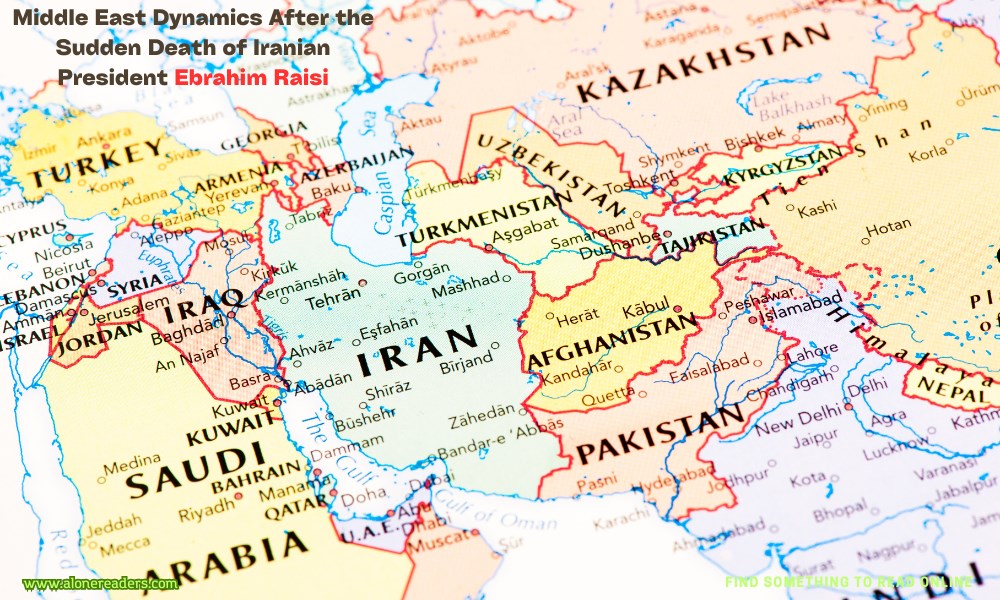
The unexpected death of Iranian President Ebrahim Raisi in a helicopter crash has the potential to significantly impact the Middle East's geopolitical landscape. Raisi's tenure as president was marked by his hardline stance and his close alignment with Supreme Leader Ayatollah Ali Khamenei. His death leaves a vacuum that could alter the region's political dynamics, potentially affecting everything from Iran's internal stability to its foreign relations and proxy conflicts.
Ebrahim Raisi's presidency, which began in 2021, was characterized by a stringent enforcement of conservative policies, particularly regarding social issues and foreign policy. His administration was noted for its strict adherence to the Islamic Republic's ideological principles and an unyielding approach towards dissent, which saw significant crackdowns on protests. This hardline approach extended to foreign policy, where Iran under Raisi intensified its confrontational stance against the United States and its allies, particularly in the context of the ongoing nuclear negotiations and regional conflicts.
Raisi's death could precipitate a period of political uncertainty within Iran. The immediate succession by an interim president, followed by the need for new elections, could lead to a power struggle among various factions within the Iranian political elite. This internal turmoil might weaken the central government's grip, potentially emboldening opposition groups and increasing domestic unrest. Such instability could divert Iran's attention inward, temporarily reducing its influence in regional affairs.
The potential shift in leadership might also affect Iran's foreign policy. Raisi was a staunch supporter of the so-called "Axis of Resistance," which includes groups like Hezbollah in Lebanon, the Houthis in Yemen, and various militias in Iraq and Syria. His death might lead to a reevaluation of Iran's support for these groups, depending on who succeeds him and their respective policies. A more moderate successor might seek to de-escalate tensions and improve relations with Western countries, potentially leading to a reduction in regional conflicts. Conversely, a hardliner similar to Raisi could maintain or even escalate Iran's aggressive foreign policy stance, continuing to support proxy groups and confront adversaries.
The international community's response to Raisi's death will also be pivotal. Countries like the United States, Israel, and Saudi Arabia, which have been critical of Raisi's policies, might view his death as an opportunity to push for a more moderate Iranian administration. Diplomatic overtures and negotiations might increase, aimed at curbing Iran's nuclear ambitions and its regional influence. However, if a hardliner succeeds Raisi, these countries might brace for continued or heightened tensions, reinforcing their strategic alliances and military preparedness.
In the broader Middle East, Raisi's death could impact ongoing conflicts and alignments. For instance, in Syria, where Iran has been a key supporter of President Bashar al-Assad, a change in Iranian leadership could alter the dynamics of the conflict. Similarly, in Yemen, where Iran's support for the Houthi rebels has prolonged the civil war, a shift in Iranian policy could influence the prospects for peace.
Economic factors also play a critical role. Iran's economy has been heavily affected by international sanctions, particularly under Raisi's administration, which saw little progress in lifting these sanctions due to stalled nuclear talks. A new administration might prioritize economic recovery by seeking to re-engage in negotiations to lift sanctions, which could have significant implications for the regional economy. Improved economic conditions in Iran could lead to increased stability and a reduction in the incentive for Iran to engage in regional conflicts.
Moreover, the perception of Raisi's death within Iran and across the region will shape the immediate political and social reactions. Raisi's hardline policies and controversial past, including his involvement in the mass execution of political prisoners in 1988, have left him a polarizing figure. While his supporters might mourn his death and rally behind a similar hardline successor, his detractors could see this as an opportunity to push for political reforms and greater freedoms. The reaction of the Iranian populace and their engagement in the upcoming electoral process will be crucial in determining the country's future direction.
In conclusion, the accidental death of Iranian President Ebrahim Raisi introduces a significant variable in the Middle East's complex political equation. The immediate effects will be felt within Iran as the country navigates through a potentially tumultuous transition period. The broader regional implications will depend on the subsequent leadership and its policies, which could either steer Iran towards a more conciliatory stance or continue along the path of confrontation. The international community's engagement with Iran during this period will be critical in shaping the future of Middle Eastern geopolitics.